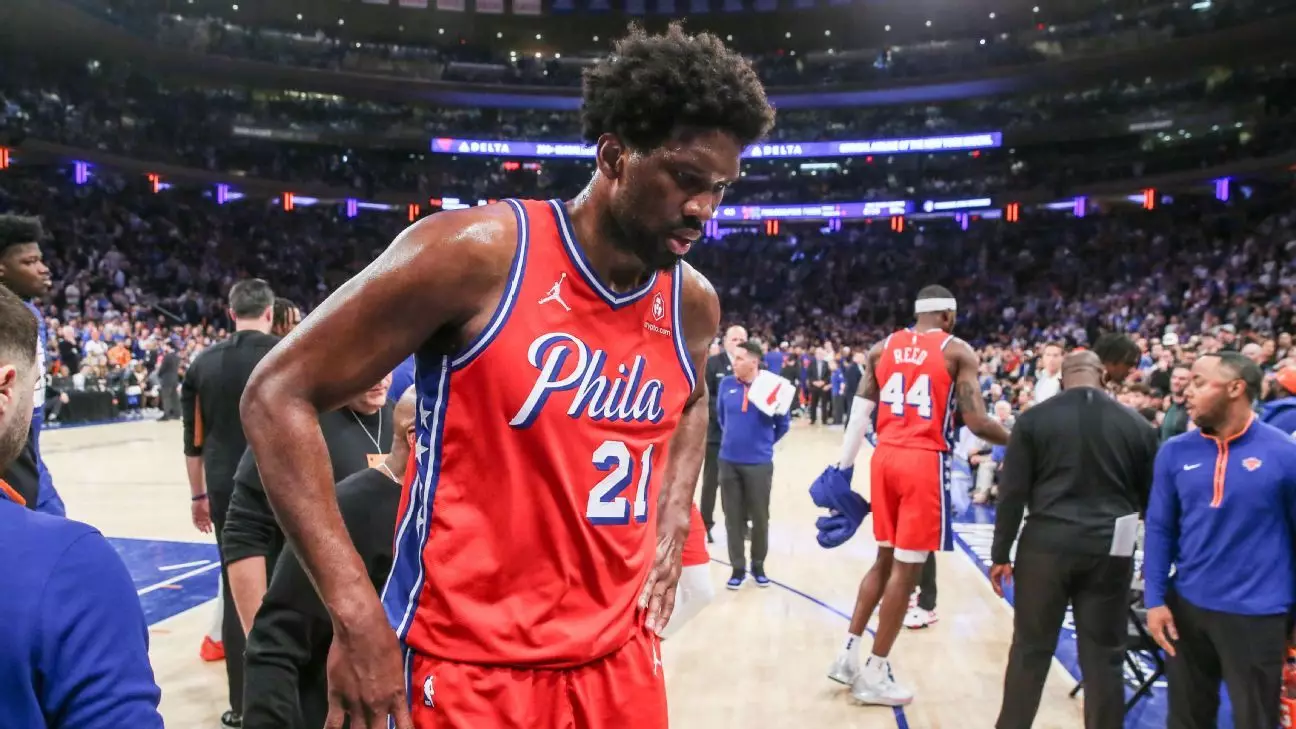The NBA is set to investigate the Philadelphia 76ers this week regarding their handling of All-NBA center Joel Embiid’s participation in games. Embiid, who played no role in preseason due to what the organization labeled as left knee injury management, is poised to miss the opening three games of the season, a decision that has raised eyebrows among fans and analysts alike. The league’s scrutiny often intensifies when a superstar is absent from nationally televised events, indicating a potential breach of player participation policies that serve to enhance public interest and maintain competitive balance.
Joel Embiid’s Injury Management Plan
According to 76ers leadership, Embiid is showing positive responses to an “individualized plan,” aimed at gradually increasing his engagement in competitive activities. This strategy, however, seems to be part of a broader trend where the team is prioritizing long-term health over short-term gains. Sources suggest that Embiid’s management includes scheduled days off throughout the season and ongoing evaluations from a dedicated medical team, reinforcing a mindset that views player health as paramount, especially for someone with a history of injuries.
The approach underscores the reality that teams may now need to adapt to new norms centered around player wellness. Daryl Morey, the 76ers’ president of basketball operations, confirmed intentions to mitigate the risk of injury by managing Embiid’s participation, including forgoing back-to-back games whenever possible. This decision reflects a comprehensive strategy designed to preserve the physical integrity of pivotal players, which could prove beneficial for playoff performance.
While the plan to reduce Embiid’s on-court minutes may appear prudent, it also poses significant challenges. The 76ers must navigate the fine line between managing his health and ensuring competitive performance, particularly as the season progresses. Embiid himself has recognized the likelihood of never participating in back-to-back games, a confession that could impact the team’s dynamics and overall strategy in the long term.
Furthermore, the player’s attempt to lose weight and his commitment to wearing a knee brace—even against his personal preference—illustrate the intense dedication he maintains toward maintaining his competitive edge. Last season, Embiid appeared in only 39 games due to knee-related issues and other medical setbacks, including complications like Bell’s palsy during the postseason, which undoubtedly affected his performance.
The decisions surrounding Embiid extend beyond just one player; they influence the entire franchise. Fans and team management alike must reconcile their desire for immediate success with the necessity of protecting their most valuable asset. As teams across the league witness similar trends, the NBA landscape could adapt to accommodate a more health-focused approach to player management.
Ultimately, the outcome of the upcoming investigation might have ripple effects across the league, illustrating the ongoing evolution of player participation practices and the significance of safeguarding athletes’ long-term health while ensuring competitive integrity in professional sports.

